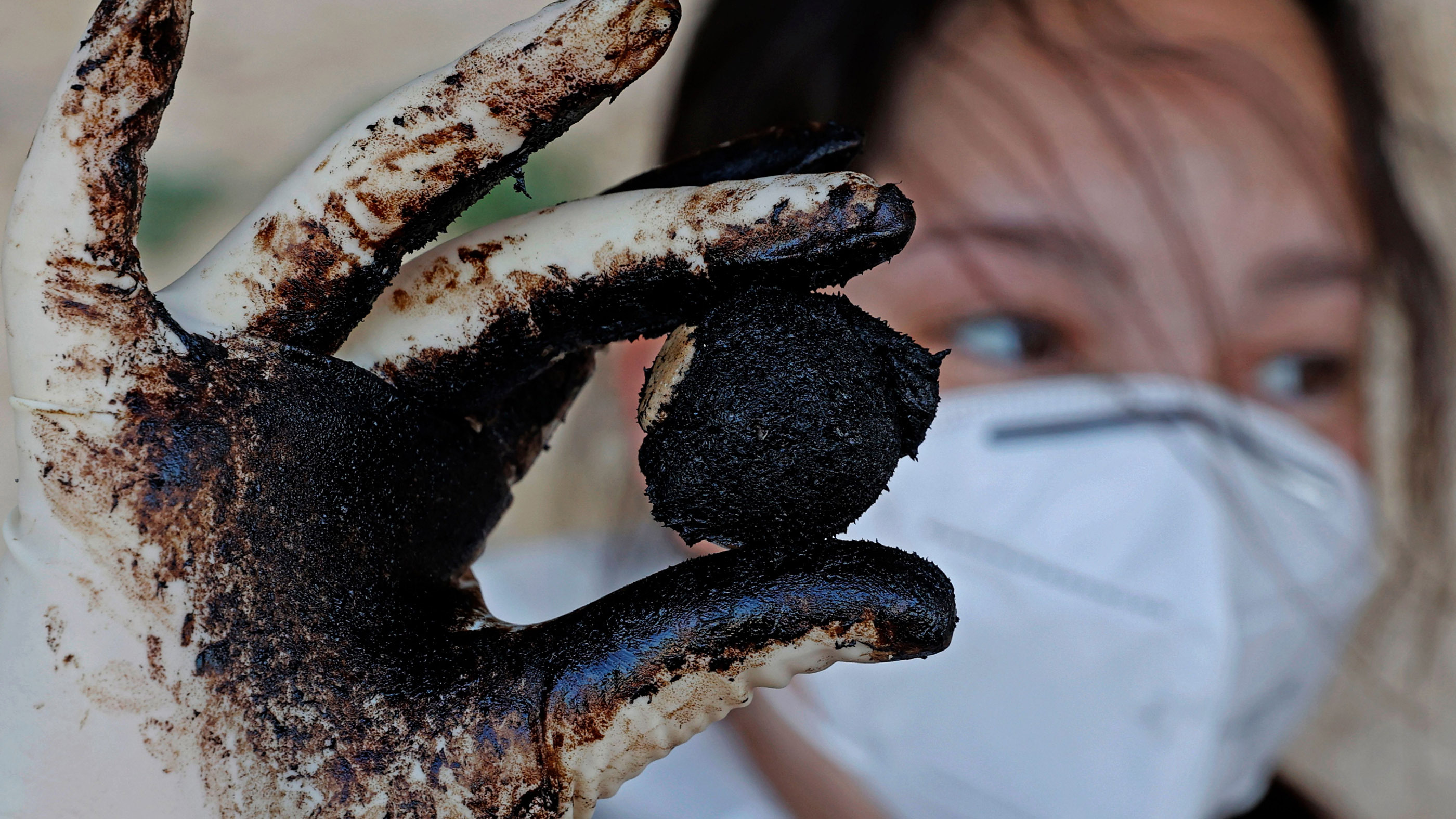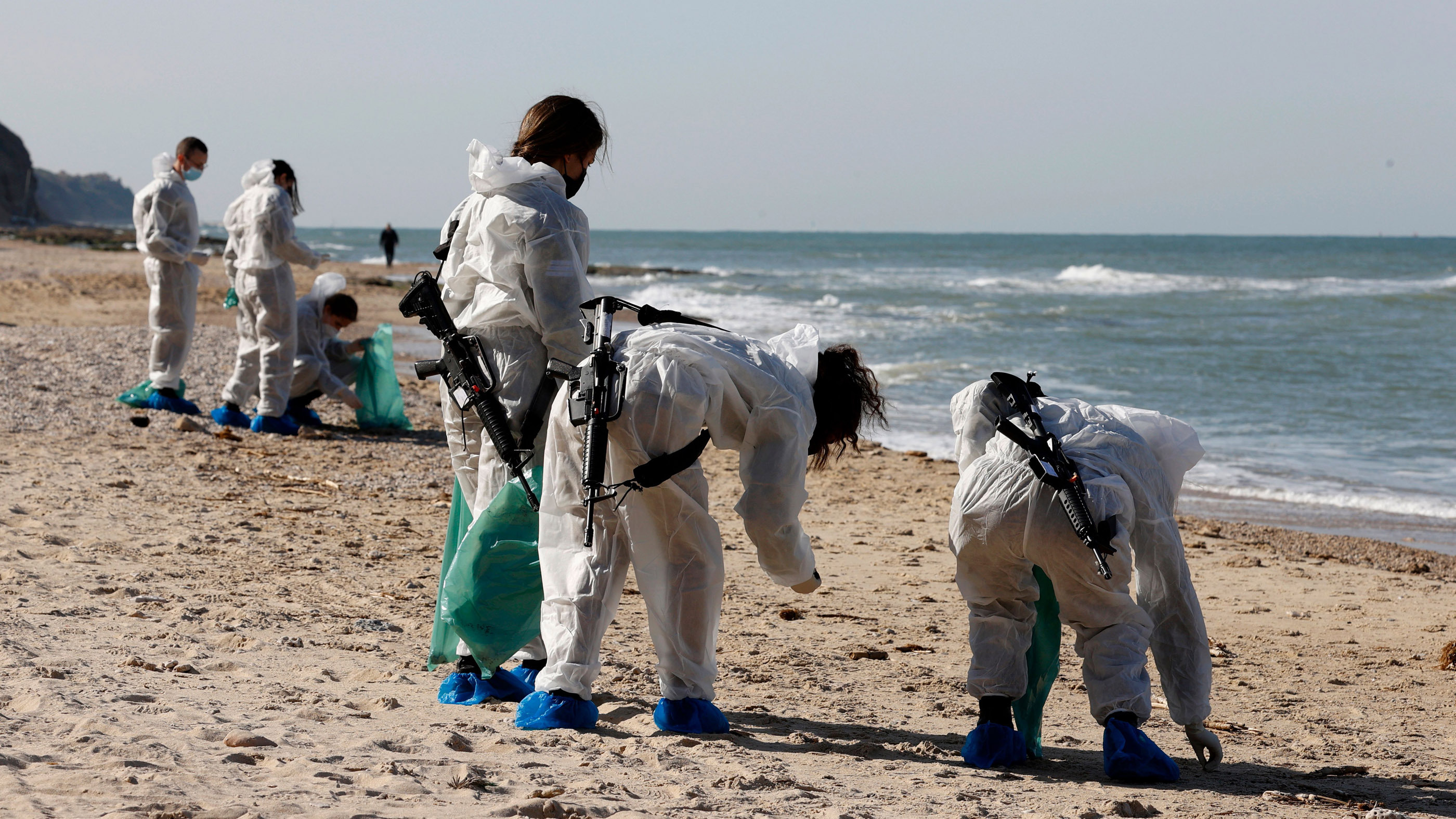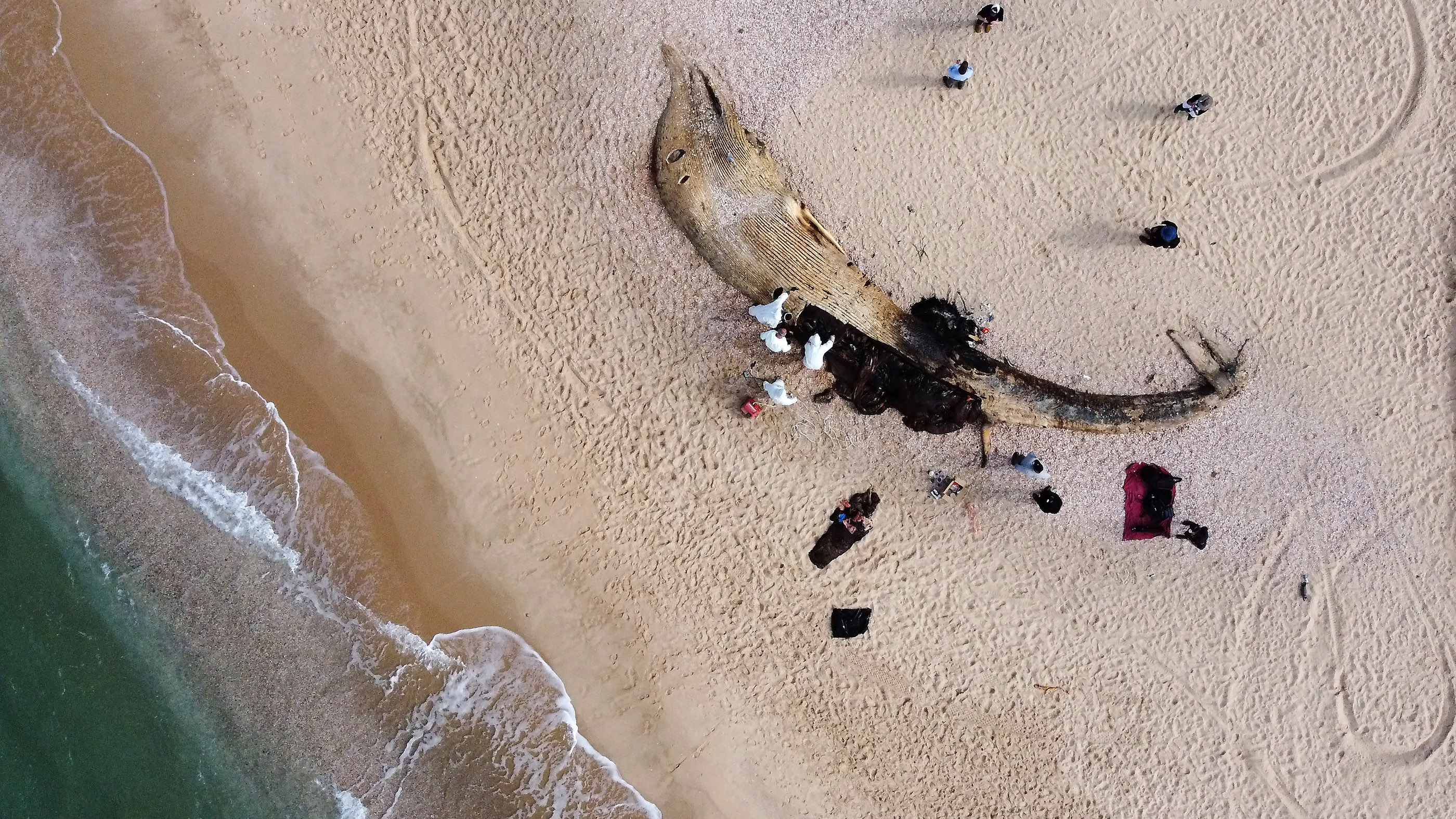Mysterious oil spill covers Israel's coastline in toxic tar balls
Officials describe it as "one of the most serious ecological disasters" the country has ever seen.

More than 100 miles (161 kilometers) of Israel's normally pristine Meditteranean coastline have been stained with thick globules of tar that washed up after an oil spill off the coast of the country last week. Authorities have yet to identify the culprit, but they say it is harmful to both humans and marine life.
Israel's Nature and Parks Authority (INPA) called the spill "one of the most serious ecological disasters" the country has ever seen and warned it could take years to completely remove the waste from beaches, according to the BBC.
The tar was first noticed on Israel's beaches on Wednesday (Feb. 18) after a heavy winter storm battered the coastline. Israel's Environmental Protection Ministry estimates that as much as 1,100 tons (1,000 metric tons) of tar have already washed ashore, according to Aljazeera.
Related: The 10 weirdest spills in nature
Normally, oil spills form a thin slick across the water surface, with some washing up on beaches in a more liquid form. The Israel spill, however, turned into tar balls because rough sea conditions brokeup the slick and mixed it into the seawater for several days creating small concentrated blobs of congealed oil (tar balls), according to NOAA.
On Saturday (Feb. 21), satellite images from the European Maritime Safety Agency showed that the spill had most likely originated about 31 miles (50 kilometers) off Israel's coast, but the exact cause of the spill and what is responsible for it are still unknown, according to Haaretz.
Thousands of volunteers turned out at beaches across Israel's coastline once the storm subsided to remove the tar by hand, after environmental NGOs including Ecoocean and Zalul requested the public’s help. Soldiers from the Israeli army were also sent to help deal with the cleanup effort.
Sign up for the Live Science daily newsletter now
Get the world’s most fascinating discoveries delivered straight to your inbox.

However, several volunteers had to be taken to hospital after breathing in toxic fumes given off by the sludge. On Sunday (Feb. 22), government officials closed the entire length of Israel's 120-mile (195 km) Mediterranean coastline to members of the public, due to health concerns.
Marine life impacts
Although it is still too early to know the exact impacts of this spill on the marine environment, officials fear that it could be extremely damaging, according to Aljazeera.
On Wednesday (Feb. 18), a 55-foot-long (17 meters) fin whale washed up dead on a beach in southern Israel at the same time as the first globules of tar were washing up to the north. A necropsy (animal autopsy) by INPA veterinarians revealed the whale's stomach was filled with a black liquid; further testing that's being undertaken will confirm whether that liquid is oil.

Several distressing photos have also circulated online showing juvenile turtles covered in black sludge that have washed up across the coastline. Some were taken to the Israeli Sea Turtle Rescue Center, but many were already dead when they washed up, Haaretz reported.
Whales, turtles and seabirds are some of the most at risk marine animals from oil spills because they breathe and feed at the surface.
"Imagine that you tar a roof to seal it. Imagine a whole world of living things being sealed off and suffocated by tar," said Ruth Yahel, a marine ecologist with INPA, talking to the Times of Israel.
And experts worry that the tar that has washed ashore is only a fraction of the toxic sludge still out there.
"The greatest fear is that there is a lot more tar in the sea right now that is poisoning wildlife, and still hasn't reached us," said Dor Adelist, a marine scientist from the University of Haifa, talking to the news outlet Walla, as reported by the Times of Israel.
Environmental controversy
Environmental groups, including INPA, have criticized the government in the wake of the oil spill after multiple failed attempts to establish programs and funding to deal with oil spills in the last two decades, according to the Times of Israel. As a result, there were no real plans in place to effectively deal with the sticky situation when it began.
There is also some controversy about the origins of the spill.
The Environmental Protection Ministry (EPM) was investigating a number of ships believed to have been in the vicinity of the spill and therefore potentially responsible for the mess. "We are making every effort to find those responsible for the disaster, and we will bring to the government's approval tomorrow a proposal for resolutions to rehabilitate the environment," said EPM minister Gila Gamliel in a tweet, according to Aljazeera.
However, on Monday morning (Feb. 22), a judge had issued a gag order on details pertaining to the oil spill. This prevents the Israeli press from publishing anything about the identity of any suspects or vessels involved, including their cargo, destination and port, for a week. The Israeli news outlet Haaretz called the gag order an "unusual move" that could suggest some sort of cover-up.
The spill also coincides with the recent signing of an agreement to build a new oil pipeline between the United Arab Emirates (UAE) and Israel, which was announced in October 2020. Environmental groups have opposed the project and say this spill is only a taste of what is to come if there is a leak from a new pipeline.
Rachel Azaria, chair of Life and Environment — an umbrella organization representing 130 charities and NGOs — called the spill "a promo for a catastrophe that could be 250 times as bad," speaking to the Times of Israel.
Originally published on Live Science.

Harry is a U.K.-based senior staff writer at Live Science. He studied marine biology at the University of Exeter before training to become a journalist. He covers a wide range of topics including space exploration, planetary science, space weather, climate change, animal behavior and paleontology. His recent work on the solar maximum won "best space submission" at the 2024 Aerospace Media Awards and was shortlisted in the "top scoop" category at the NCTJ Awards for Excellence in 2023. He also writes Live Science's weekly Earth from space series.









